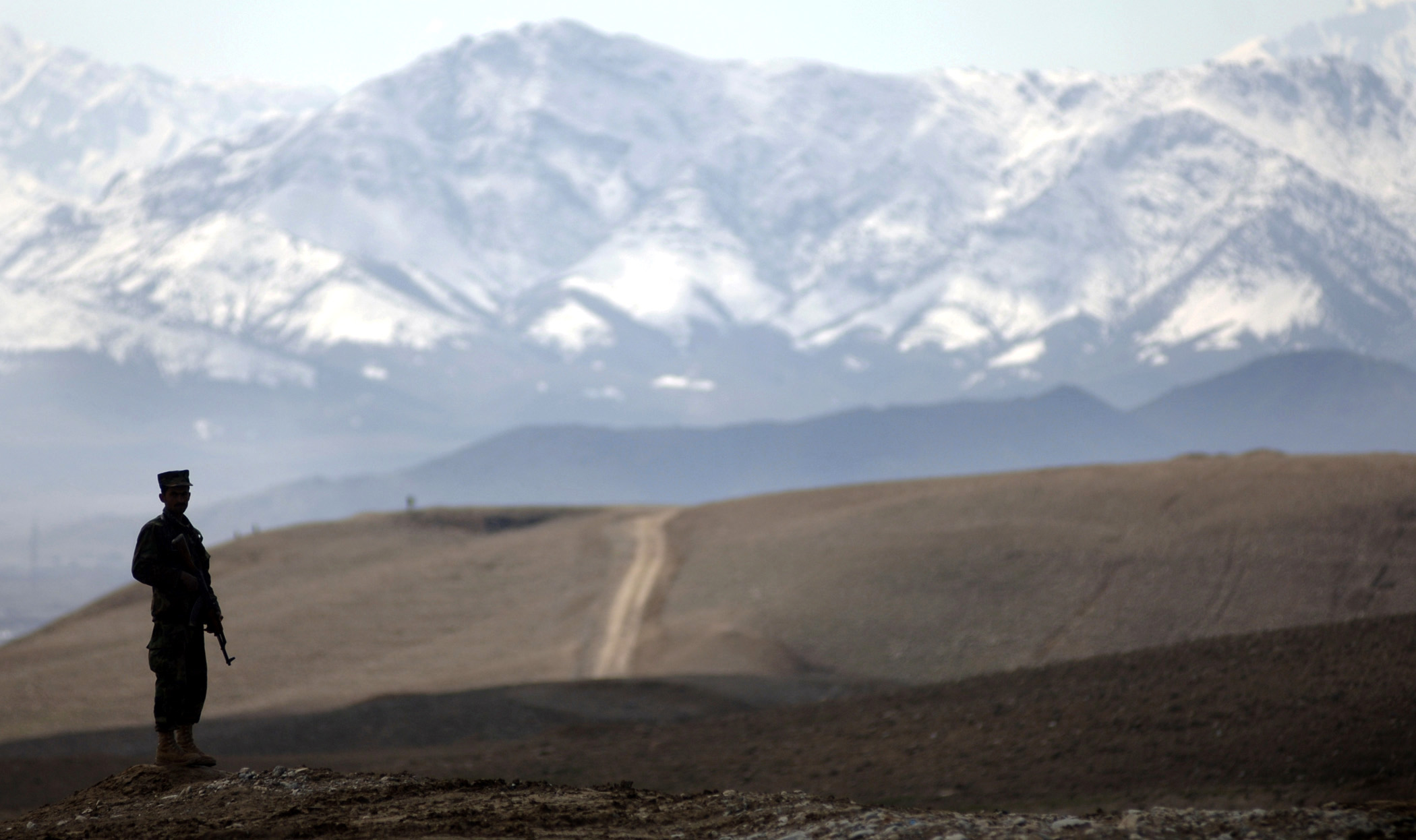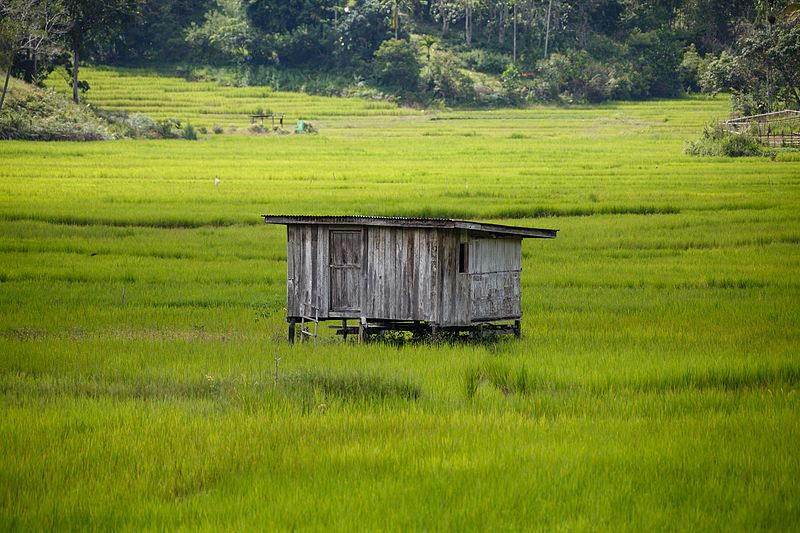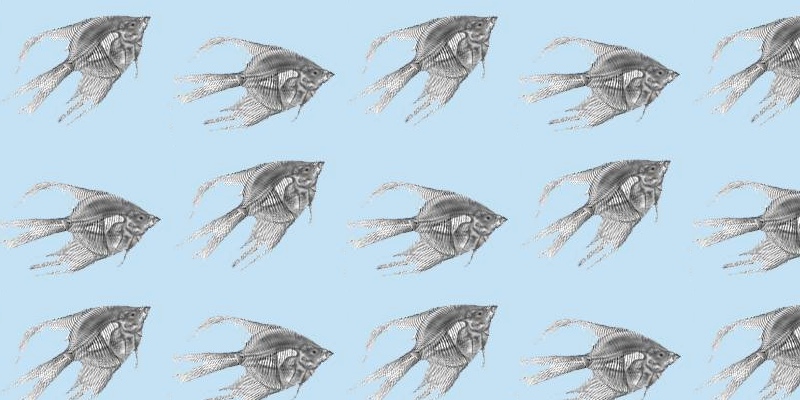All through that year, we believed in magic: magic that had the power to set things right, turn the ship around, get us out of there unscathed.
Not for us the mere illusions of a Houdini or Copperfield, though we would have dearly loved their knack for escape. The real stuff, we knew, worked in far subtler ways, taking us from the heat of the field to the showers’ piercing chill, from noontime drills to the garages’ shade. For some, it was life-saving; for others, a way of besting life—a set of spells to read the weather with, long after those months were over. But all that any of us asked, for a time, was that the days passed without incident, and trading our uniforms for civvies each weekend was proof enough that the magic worked.
I arrived in camp in the middle of 2017, resuming my National Service after some years abroad. I remember little of those first, scorched days, except that barely two months later one of us was killed in a training accident. It happened while his unit was on an exercise in Australia: they were maneuvering by night when his tank overturned, flinging him to the ground. We found out the next day. His unit occupied the barracks right across from ours, and finding his picture in the news, it was impossible to say if I had not seen him in the cookhouse just weeks before—warm, rowdy, and alive.
My commanders at the time were adamant: we were not to post about the ‘incident’ (as it came to be called) on social media, or discuss it with friends and relatives. To spare a thought for the family, we were to urge anyone who asked to wait for official word from the authorities. Yet nothing changed the fact that it was only the Singapore Armed Forces’ first fatal training accident in five years. While we had all been aware of being called up to a risky enterprise, the proximity of death now settled over us with a sudden chill. Of course the regulars, who were responsible for us getting home safe each week, felt it too. But for us conscripts, who brought our boyish dreams and quarrels into camp, and had no one else, really, to share them with but each other, little could be more sobering.
And that is when I began to notice the magic. Quite imperceptibly at first, with the boys hesitating a split second longer when asked to make a run to the fuel store, which was bedecked with ‘Hazard’ signs, and which everyone knew was haunted. Or going in pairs to the heavy-vehicle garage, in case they could be of help, they said, with even the lightest tasks. During one frantic bunk inspection, I glimpsed pieces of nondescript red thread and flimsy card stuck to the doors of my roommates’ lockers. Soon there was no denying it: even the altars behind the cookhouse had taken a fresher coat of paint, and seemed more well-stocked than usual with their plates of dry offerings.
An older friend told me around this time that when he had served as a tank commander himself, the crew would affix tiny charms to the dashboards, convinced there was no other way their hulking, unpredictable machines would survive the next outing. Small enough to go unnoticed in an inspection, these charms—little more than bits of cheap red paper—held an imprecise and immeasurable power. ‘Nobody really believed that they would work,’ he said. ‘Except, of course, we all did.’
I remained sceptical until one week, the entire unit was given an additional ‘night out’: permission to leave camp for the evening, and return just before lights-off. These were few and far between, and normally granted on Wednesdays if our behaviour was deemed satisfactory. But this was a Monday, too early in the week for us to have done anything particularly deserving of the luxury.
The duty sergeant announced during roll call that we were all to leave camp by 5pm, and return no earlier than 10pm: no one would be allowed to remain in their bunks. No questions were asked (not that they would ever have been answered) but soon a whisper spread; one of the boys had heard the officers discussing the evening’s plans in the corridor. As the news went, our Commanding Officer had invited a spirit medium to ‘cleanse’ the barracks and garages of evil. Our unit, too, was due to go overseas for a training exercise before the year was up, so it would have been imprudent not to take precautions. This medium was known to be good at her job. And we weren’t taking any chances.
***
Over the coming months, the deaths kept happening. A private in an elite Guards unit collapsed after an early-morning march. Not long afterwards, a corporal in the Civil Defence Force—a Malaysian citizen and permanent resident in Singapore—was killed in a ragging incident, just three days before finishing his time in conscription. We followed the news with pretended disinterest, noting in detached tones the timing and circumstances of each death, and whether there had been any progress in the ongoing investigations to determine who was responsible. These exchanges were staged over and over, small scraps of truth passed between us till they turned themselves into myth.
In early 2018 a new Warrant Officer took over our branch, and the first thing he did was to draw up new plans for the office: a makeover. In the layout he sketched out on ruled paper, the tall cabinets that shielded our ragged sofa from the officers’ seats would be moved up against the wall, and stacked close to obstruct half the length of the windows. Partitions which had divided the room into three smaller cubicles were to be thrown out altogether, and the computers re-arranged so that whoever was using them would face north. A little paper talisman, finally, was to be taped to the air-conditioning grille—so it would be easier to tell, he said, whether the ceiling ventilators were switched on.
He left these designs to us to execute one Friday morning, before we booked out for the weekend. Of all the changes, we resented most the fact that an old armchair, which had been within reach of our one internet terminal and conveniently hidden behind some metal drawers, would now be situated on the far side of the room, in full view of the commander’s desk. But we set to the task, bemused by his wishes, and took the chance to raid the office’s stash of energy drinks as we went along.
The following week, quite satisfied with our handiwork, he let us in on the logic behind the new arrangements. The grey metal cabinets represented ‘mountains’, and the corridor outside a ‘river’, forming the basic contours of the office’s inner geography. ‘Wind’ from the air-conditioning vent would spread the talisman’s good fortune around the room, and carry any residual unluckiness out through the door, now unobstructed by the partitions. With his back to the mountains, and only half the windows open, whoever was seated at the commander’s desk (and thus engaged in the most important work) would be protected on each side from ‘bad air’ and untoward rumours or schemes.
He leaned back in the armchair—which he would eventually commandeer as his special perch—after explaining each decision, and smiled sagely at us. The key pieces of furniture in the office were now aligned with the basic principles of fengshui, and this could only bode well for the remainder of his term in the unit. Though unbelieving at first, we took his detailed analysis as the most natural thing in the world. Surely, he knew from experience what would best guarantee success. And what harm could there be in trying something different? We had not, after all, had the most auspicious year.
By this point, we were well acquainted with magic ourselves. If, after the tank accident, we had been making up our own ways of staying safe, with barely a thought for established rules and practices, these were now second nature. We accompanied each other to the laundry room on the fifth floor’s long and lonely corridor, where mysterious footprints had appeared on the ceiling some years ago. One commander even moved into the fourth-floor bunk directly below his own, putting up with the conscripts’ general disarray to avoid having to set foot upstairs. When it came to packing and moving heavy furniture from the disused barracks in another camp to ours – which, done by hand, turned out to be a spectacularly unsafe enterprise – we made sure to plan for a particularly auspicious date.
Of course, growing up in melting-pot Singapore, we were more than familiar with the many cosmologies that our piecemeal ‘magic’ grew out of. We knew instinctively that all the things we did to balance fear and fortune in the camp drew quite liberally from more traditions than we could count with both hands. But we were also used to a kind of joyful and pragmatic syncretism that borrowed from across the boundaries of culture and belief. Hadn’t our commanders encouraged us to adopt each other’s ‘best practices’? Disaster, we were sure, would never discriminate between faiths.
As it turned out, our unit was spared. Save for a couple of late-night trips to the hospital, one recruit found blacked out in the bathroom, and a narrowly-prevented fistfight, nothing especially severe happened: all of us went home each weekend to our families and girlfriends. But over the time I was in the army, there were no fewer than four training deaths and three suicides: not counting fatalities in the other conscript services (the Police and Civil Defence Forces). Inevitably, some of these struck closer to home: they had been someone’s brother’s colleague, or a cousin’s former commander.
Our daily roll calls, once so routine, started to take on the shimmering quality of ritual. Every so often, I was asked to print off the boys’ names and make sure that they were all present at the end of a long training day. And there they were, slick with an afternoon’s sweat and itching for a shower, but gloriously – even miraculously – there. Could it just have been our wishful thinking, or did even the tardiest boys arrive on the parade square half a minute earlier during those months, stand slouching in their rows more subdued than before? Something in the water, we joked. No, the air.
Days before I finished my own time in National Service, the rapper Subhas Nair launched the video for his new song ‘N.S’. Another mother joins the sorority of sorrow,’ the opening lines went, ‘as another son doesn’t live to see tomorrow’. We listened to it in the office, then downloaded it, and heard it again in the cookhouse and in our bunks. Most of the lyrics were lost on the boys, who marvelled instead at the video with its familiar street scenes. But the refrain, at least – intoned by Subhas in a fading echo – caught their attention: ‘Stop sending them / stop sending them / stop sending them’.
***
Even now, it seems, those who have not experienced magic find it an incomprehensible thing. Not least because its premises belong to another place and time, they think it beyond mortal understanding, or dismiss it altogether as superstition. What they do not realise is that magic in the hands of the disempowered is the only powerful thing there is. When all else is arbitrary, what has one to lose by trusting in seemingly inconsequential factors – the weight of a charm, a window left open – to turn one’s fortunes around? This is the stuff of magic. And magic, I’ve learnt, is power itself.
A familiar tale from the early years of the British arrival in Singapore tells of Syed Yasin, a jailed debtor who escaped his nonplussed captors, stabbed the East India Company’s appointed Resident, and triggered a diplomatic standoff before he was arrested and put to death. Following his execution, the colony’s administrators put his mutilated body on public display for a week (in deliberate contravention of Islamic law) as a terse warning of what would befall any other would-be conspirators.
As it turned out, their efforts had the opposite effect. The Sultan requested Yasin’s body to be taken down and placed in a proper grave, which, soon afterwards, was designated as a keramat: a shrine marking the burial-spot of a saint, rich with blessings for those who worshipped there. Folklore sprang up around the man himself – how he was a descendant of Prophet Muhammad, and renowned as a worker of miracles from Sumatra to Gujarat, guiding caravans across the Bay of Bengal. His having run ‘amok’ that fateful night was attributed to his being a majzub, one who dwelled in a state of trance-like devotion. And he had only allowed himself to die, it was said, as an act of martyrdom.
In hindsight, it is perhaps unsurprising that stories like these would have proliferated at a time of imperial violence. The most powerful magic has a way of taking root in moments of profound weakness, lending feet to fancy, even against our better instincts. Within living memory, anti-colonial rebellions have been led in this region by men laying claim to ethereal powers: the Dieu Python movement in Vietnam, for instance, led by a village chief whose daughter gave birth to a serpent, or the Saya San rebellion in Burma, whose leader deployed charms and tattoos against the British bullets.
It might equally be said that it is the faith of the disenfranchised, that gives the magic they know and practice its undisputed power. When one is in a position of unfreedom, figuring out one’s options takes more than ingenuity: nothing less than the hard work of believing in something, and the grit to keep on with it. The sceptic who finds it ‘too easy’ to put his hopes in superstition has likely never been in a place where this, however implausible, is the only option. To the boys presenting themselves in camp on Sunday night, counting down to the end of their conscription, or even the Warrant Officers charged with the heavy-lifting of a national dream – who could possibly tell them to hope in less?
Months after leaving the unit, I joined the boys for a barbecue at a beach chalet. Though it had been some time since I returned to civilian life, I shared their gladness at leaving the camp and its harsh concrete behind. Owned by the Reservists’ Association, the chalet was often booked by servicemen at relatively low cost, and the boys pooled together some money for food and other supplies. Some were, by now, days from ending their two-year stint, and spoke confidently of new plans – to start work at their families’ small businesses, or save enough to take their siblings to the theme park.
Talk turned, inadvertently, to the death of Aloysius Pang, a television actor killed on reservist training early in the new year. He, too, had served in an artillery unit, and was on an exercise in New Zealand when he died – the same one our boys deployed on a year before. The vehicle he was trained to operate, and which had eventually taken his life, was no different from the ones that sat in our garage. He had been caught by the heavy gun barrel as it lowered, and crushed against the wall of the cabin.
‘Suay lah’, said Han, digging into the table with his fork. ‘Don’t even know what he died for, man. Can you imagine? What he must have been thinking. When it happened. Like, shit, this is it.’
‘Yeah. Could have been you,’ said Warid, looking up. ‘Or you.’
‘Choy. One more month and I’m out of here. Just let me ORD in peace. You too.’
‘In peace, yes. Amen to that.’
A landward breeze drifted across the gathering, lifting our plates gently off the tables and setting them down again. In the silence that ensued I found myself dwelling on the bravado of that brief exchange, how even our ways of brushing off danger had, in time, taken on the inflections of belief, a streak of wild magic running beneath the surface of our conversation. Even those – like Warid – who had enlisted months ago with the most rational casts of mind could find their speech betraying them.
But this, in itself, could hardly be thought surprising. Less so, at least, than the degree to which our waking moments were already utterly consumed by the test of that most elusive magic, a power on which everything hung, and of which we had least assurance of success. Because whatever we had come to expect in our long months of National Service, all that our faith and fengshui prepared us for, boiled down to this: whether we would find ourselves emerging unharmed at the end of two years, perhaps a little worse for wear, but stronger and kinder people for it, or – not. It was the best we could do, to walk out of those gates with our lives ahead of us. To live, and live to tell the tale.




